
2013 Conference Faculty Biographies
 John Aucott, MD
John Aucott, MD
Assistant Professor in Medicine, Johns Hopkins Hospital
Johns Hopkins University, Baltimore, MD
Private Practice: Board Certified, Internal Medicine
10755 Falls Road, Suite 200
Lutherville, MD, 21093
Erythema Migrans (EM) in Lyme Diagnosis
Dr. Aucott is a graduate of the University of California at Berkeley where he was elected to the membership of Phi Beta Kappa. He attended the Johns Hopkins University School of Medicine, and is a Diplomate of the American Board of Internal Medicine with sub-specialty training in Infectious Disease and Geographic Medicine at University Hospitals of Cleveland. He served as the Section Head for General Internal Medicine and the Residency Program Director at the Cleveland Veterans Affairs Medical Center while on the faculty at Case Western Reserve University School of Medicine from 1989-1996. He was promoted to Associate Professor of Medicine in 1995.
In 1996, Dr. Aucott returned to Baltimore to join the clinical Faculty of Medicine at Johns Hopkins School of Medicine where his focus has been on clinical translation research in Lyme disease. He is currently the Principal Investigator for the prospective cohort study, SLICE, examining the impact of acute Lyme disease on long-term health outcomes and immune function.
Dr. Aucott is the founder of the Lyme Disease Research Foundation, a public non-profit organization founded to promote research and education in Lyme disease. He has lectured through programs sponsored by Johns Hopkins Divisions of Medicine and Infectious Diseases, the American College of Physicians, and other major medical programs in the United States. He has published numerous articles in the field of infectious diseases and Lyme disease.
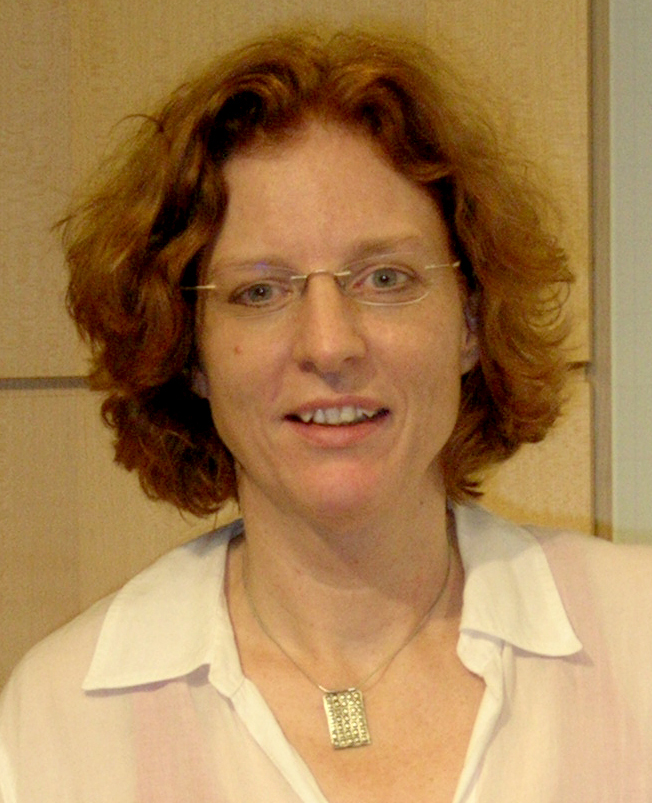 Nicole Baumgarth, DVM, PhD
Nicole Baumgarth, DVM, PhD
Center for Comparative Medicine
University of California, Davis
County Rd 98 & Hutchison Dr.
Davis, CA 95616
B cell subversion during Borrelia infection – a persistence strategy
Nicole Baumgarth is a DVM, PhD and Professor of Immunology at the Center for Comparative Medicine, University of California, Davis. She is also the Chair of the Graduate Group in Immunology there. Dr. Baumgarth’s research encompasses studies on the regulation of immune responses to infections and B cell biology. Much of her recent work has focused on the regulation of B cell responses and B cell subset responses using mouse models to two very different pathogens and immune responses: Acute influenza virus infection, an infection that fully resolves and induces highly protective and long-lived B cell-mediated immunity, and B cell responses to Borrelia burgdorferi, a bacterial spirochete and the causative agent of Lyme disease. Infections with B. burgdorferi induce strong B cell responses, however, those responses to not result in clearance of the infection. By contrasting a successful with a not-successful B cell response her group hopes to uncover important immune regulatory mechanisms that shape the quality of the B cell response.
 Edward B. Breitschwerdt, DVM
Edward B. Breitschwerdt, DVM
Professor of Medicine and Infectious Diseases
North Carolina State University College of Veterinary Medicine
Adjunct Professor of Medicine, Duke University Medical Center
Diplomate, American College of Veterinary Internal Medicine (ACVIM)
Raleigh, NC
Bartonelliosis: A One Health Approach to a Persistent Blood-Borne Infection
Dr. Edward B. Breitschwerdt is a professor of medicine and infectious diseases at North Carolina State University College of Veterinary Medicine. He is also an adjunct professor of medicine at Duke University Medical Center, and a Diplomate, American College of Veterinary Internal Medicine (ACVIM). Dr. Breitschwerdt directs the Intracellular Pathogens Research Laboratory in the Center for Comparative Medicine and Translational Research at North Carolina State University. He also co-directs the Vector Borne Diseases Diagnostic Laboratory and is the director of the NCSU-CVM Biosafety Level 3 Laboratory.
A graduate of the University of Georgia, Breitschwerdt completed an internship and residency in Internal Medicine at the University of Missouri between 1974 and 1977. He has served as president of the Specialty of Internal Medicine and as chairman of the ACVIM Board of Regents. He is a former associate editor for the Journal of Veterinary Internal Medicine and was a founding member of the ACVIM Foundation.
Breitschwerdt’s clinical interests include infectious diseases, immunology, and nephrology. For over 20 years, his research has emphasized vector-transmitted, intracellular pathogens. Most recently, he has contributed to cutting-edge research in the areas of animal and human bartonellosis. In addition to authoring numerous book chapters and proceedings, Dr. Breitschwerdt’s research group has published more that 300 manuscripts in peer-reviewed scientific journals. In 2012, he received the North Carolina State University Alumni Association Outstanding Research Award and in 2013 he received the Holladay Medal, the highest award bestowed on a faculty member at North Carolina State University
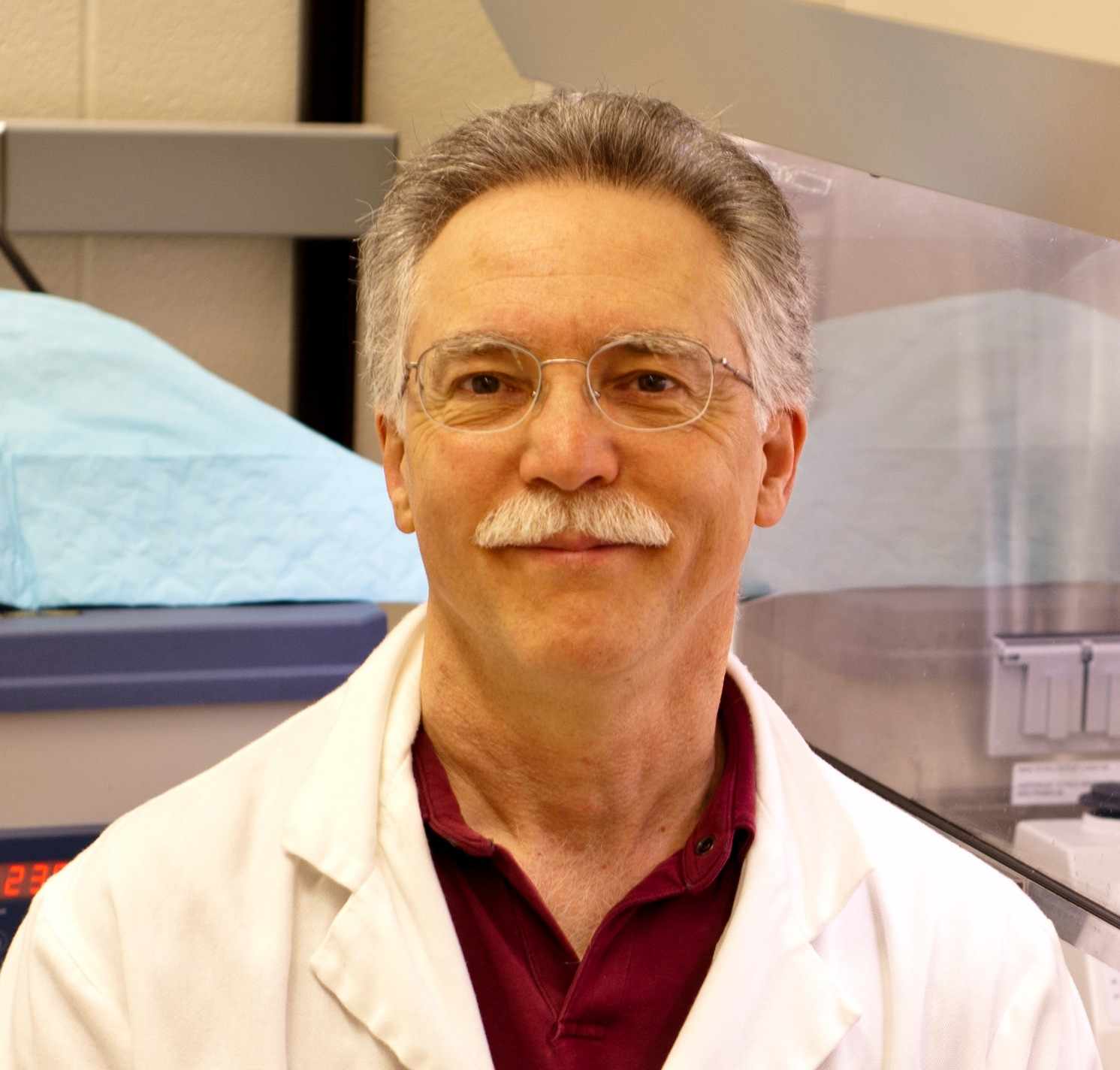 George Chaconas, PhD
George Chaconas, PhD
Canada Research Chair in the Molecular Biology of Lyme Borreliosis
Department of Biochemistry & Molecular Biology
The University of Calgary
Calgary, AB
Canada
Live Imaging Studies of Dissemination of the Lyme Spirochete in Mice
George Chaconas obtained his Ph.D. in the Division of Medical Biochemistry at the University of Calgary in Alberta, Canada and did postdoctoral work Cold Spring Harbor Laboratory in New York. He subsequently took a faculty position in the Department of Biochemistry at the University of Western Ontario. His laboratory focused on the molecular mechanism of DNA transposition or “how jumping genes jump”. In 1999-2000, with the help of a Guggenheim Fellowship, George’s research interests took a turn through a sabbatical at the NIH Rocky Mountain Labs in Montana where he began working on the Lyme disease pathogen Borrelia burgdorferi. In 2002 he took a position in the Department of Biochemistry & Molecular Biology and the Department of Microbiology & Infectious Diseases at the University of Calgary in Alberta, Canada where he is currently Professor, Scientist of the Alberta Heritage Foundation for Medical Research and holds the Canada Research Chair in the Molecular Biology of Lyme Borreliosis.
 Madeleine W. Cunningham, PhD
Madeleine W. Cunningham, PhD
George Lynn Cross Research Professor
Presbyterian Health Foundation Presidential Professor
Microbiology and Immunology
Director, Immunology Training Program
University of Oklahoma Health Sciences Center
Biomedical Research Center
Oklahoma City, OK
Anti-Neuronal Antibiodies in Lyme Disease
Dr Cunningham received her PhD in1973 at University of Tennessee-Memphis in Microbiology and Immunology. She studied for 3 years as a postdoctoral fellow in Protein Studies at the Oklahoma Medical Research Foundation in Oklahoma City. Following her postdoctoral fellowship, she accepted a position at the University of Oklahoma Health Sciences Center & has maintained an active laboratory since 1980.
Research in Dr. Cunningham’s laboratory investigates molecular mimicry, autoimmunity and infection in inflammatory heart diseases and in behavioral and movement disorders.
Her laboratory studies autoimmunity, infection and behavior which is manifest in diseases such as Sydenham’s chorea and in pediatric autoimmune neuropsychiatric disorder following group A streptococcal infection (PANDAS). Using human monoclonal antibodies, the work has identified antibody mediated neuronal cell signaling as a potential basis for movement or neuropsychiatric disorders and potentially other brain related disorders, including obsessive compulsive disorder, Tourette’s Syndrome and Tics. These diseases including PANDAS are under investigation to determine the relationship of autoantibodies which bind to brain antigens or signal in the brain to development of symptoms. Investigation of Lyme disease for autoantibodies against the brain has been funded by the Lyme Disease Association and the study is underway in her laboratory. She was funded by the National Institute of Mental Health Bench to Bedside Grant to investigate autoantibodies in PANDAS in the recent IVIG trial.
In addition, her laboratory investigates the pathogenesis of rheumatic carditis, a sequela of group A streptococcal pharyngitis, and of myocarditis, a complication that can follow coxsackieviral infections. Rheumatic carditis affects the heart valves, while myocarditis results in the destruction of the myocardium. Studies in myocarditis currently are supported by the National Heart Lung and Blood Institute and are focused on a 5 year longitudinal study of T cell subsets and monocyte responses in patients with myocarditis who develop cardiomyopathy. Translational research using human monoclonal antibodies and T cell clones from disease have provided clues about pathogenic mechanisms in disease. Other work funded by the National Heart Lung and Blood Institute includes studies of the pathogenesis of hypoplastic left heart syndrome in infants.
Dr. Cunningham has served many years on review panels at the National Institutes of Health and served on the National Research Committee at the American Heart Association. She was a representative of the United States for the US-Indo Vaccine Action Program. She was elected an AAAS fellow and ASM fellow. She received a National Heart Lung and Blood Institute Research Career Development Award and Merit Award. She has been supported by the NIH for the past 25 years. She is the Director of the NIAID supported Immunology Training Program at the University of Oklahoma Health Sciences Center. She lectured on the effects of autoantibodies on the brain in the Presidential Symposium at the American Association of Immunologists in 2010. Dr Cunningham is the author of over 100 publications.
 Sam T. Donta, MD
Sam T. Donta, MD
Consulting Physician in Infectious Diseases Fairmouth Hospital
Falmouth, MA
Issues in the Treatment of Lyme Disease
Dr Donta grew up in Western Pennsylvania, received his BS from Allegheny College, his MD from Albert Einstein College of Medicine, did an internship/residency in Internal Medicine at U. of Pittsburgh Hospitals, served in Air Force at Otis AFB, MA, did post-doctoral training in Biochemistry at Brandeis, and Fellowship in Infectious Diseases at Boston Univ.
He went to U. of Iowa where he became Professor of Medicine and Chief of Infectious Diseases, then was at U. of Connecticut for 11yrs as Chief of ID, Chief of Medicine at VA, then moved to Boston University/Boston VA for 10yrs before his retirement.
His basic interests have been in microbial toxins, but he has also been involved in a number of clinical trials. For the last 25yrs, he has been interested in Lyme disease, and continues to have an active clinical practice in Falmouth, studying and treating patients with chronic Lyme disease and other multi-symptom disorders such as Chronic Fatigue Syndrome and Fibromyalgia.
He is the author of 100+ publications on toxins, Lyme Disease, Gulf War Veterans’ Illnesses, and hopes to continue research in these areas.
 Brian A. Fallon, MD, MPH (Course Co-Director)
Brian A. Fallon, MD, MPH (Course Co-Director)
Professor of Psychiatry
Director, Lyme and Tick-Borne Diseases Research Center,
Columbia University Medical Center
Director, Center for the Study of Neuroinflammatory Disorders & Biobehavioral Medicine, New York State Psychiatric Institute
New York, NY
Lyme Disease Or Hypochondriasis
Brian A. Fallon, MD, MPH. Dr. Fallon is director of the Lyme & Tick-borne Diseases Research Center at Columbia University Medical Center where he leads a team focused on biomarkers, diagnostics and treatment of chronic Lyme symptoms. His team’s recent work has included the testing of novel diagnostic assays in a large community study, as well as collaborating on new test development using the Columbia Lyme Center biorepository. His team’s work on Lyme encephalopathy led to the discovery of hundreds of unique proteins present in the CSF of Lyme patients but not in the CSF of patients with chronic fatigue syndrome or healthy controls. His team’s current focus is on clarifying the immunologic profile and neural circuitry of patients with persistent symptoms. His team is also investigating the CNS metabolic effects of intravenous ceftriaxone using MR Spectroscopy to probe glutamatergic transmission. Dr. Dwork in his Center is examining the neuropathologic findings in post-mortem studies of patients with chronic Lyme symptoms. Dr. Moeller in his Center is examining the interaction between peripheral immunologic markers, central immune markers, and brain neurocircuitry among patients with chronic symptoms with the goal of identifying of biomarkers to help guide treatment recommendations. Dr. Fallon serves on the editorial and review board of three journals, has lectured and published widely, and most recently has led an international team for the American Psychiatric Association’s revision of DSM-5 to clarify the prevalence of illness anxiety in the general population.
 A.T. Charlie Johnson, BS, MS, PhD
A.T. Charlie Johnson, BS, MS, PhD
Professor of Physics and Astronomy
Associate Chair for Graduate Affairs
Secondary Appoints in: Materials Science & Engineering and Electrical & Systems Engineering
University of Pennsylvania
Philadelphia, PA
Detecting Lyme disease using antibody-functionalized single-walled carbon nanotube transistors
A. T. Charlie Johnson received a B.S. from Stanford University, and a M.S. and Ph.D. from Harvard University, all in Physics. He was a European Union ESPRIT Postdoctoral Fellow at the Delft University of Technology and a National Research Council Postdoctoral Research Fellow at the National Institute of Standards and Technology (Boulder, CO). He leads an independent research group at Penn, focused on nanostructure physics and nanoelectronics. Johnson worked extensively in the science of carbon nanotubes, making significant contributions to the understanding of thermal and electronic transport in this important nanomaterial. More recently he has been active in the area of vapor- and liquid-phase molecular sensing using functionalized nanotube field effect transistors, as well as graphene electronics and synthesis of wafer-scale graphene. Johnson was the recipient of an NSF Graduate Research Fellowship, a Packard Foundation Science and Engineering Fellowship, a Sloan Fellowship, and selection as a Fellow of the American Physical Society, among other honors. Along with the authorship of over 140 peer-reviewed articles, Johnson holds three awarded patents, with 18 other patents submitted. Johnson is a member of the Founding Editorial Board of AIP Advances. He is also a scientific founder of two companies based on technology from his laboratory, Graphene Frontiers and Adamant Technologies.
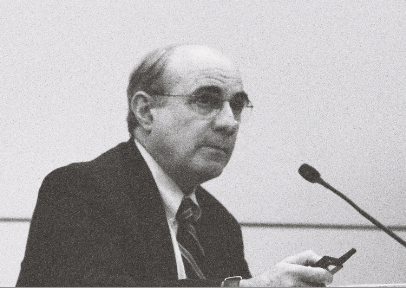 Kenneth B. Liegner, M.D.
Kenneth B. Liegner, M.D.
Internal & Critical Care Medicine
Lyme Borreliosis & Related Disorders
Pawling, NY
Problems of Lyme Disease Testing
Dr. Kenneth Liegner is a Board Certified Internist with additional training in Pathology and Critical Care Medicine, practicing in Pawling, New York. He has been actively involved in diagnosis and treatment of Lyme disease and related disorders since 1988. He has published articles on Lyme disease in peer-reviewed scientific journals and has presented poster abstracts and talks at national and international conferences on Lyme disease and other tick-borne diseases. He has cared for many persons seriously ill with chronic and neurologic Lyme disease. His work has focused on the serious morbidity and (occasional) mortality that can eventuate from this aspect of the illness. He has emphasized the urgent need for widespread clinical availability of improved methods of diagnostic testing and for development of improved methods of treatment for Lyme disease in all its stages. He holds the first United States patent issued proposing application of acaricide to deer for area-wide control of deer-tick populations as a means of reducing the incidence of Lyme disease.
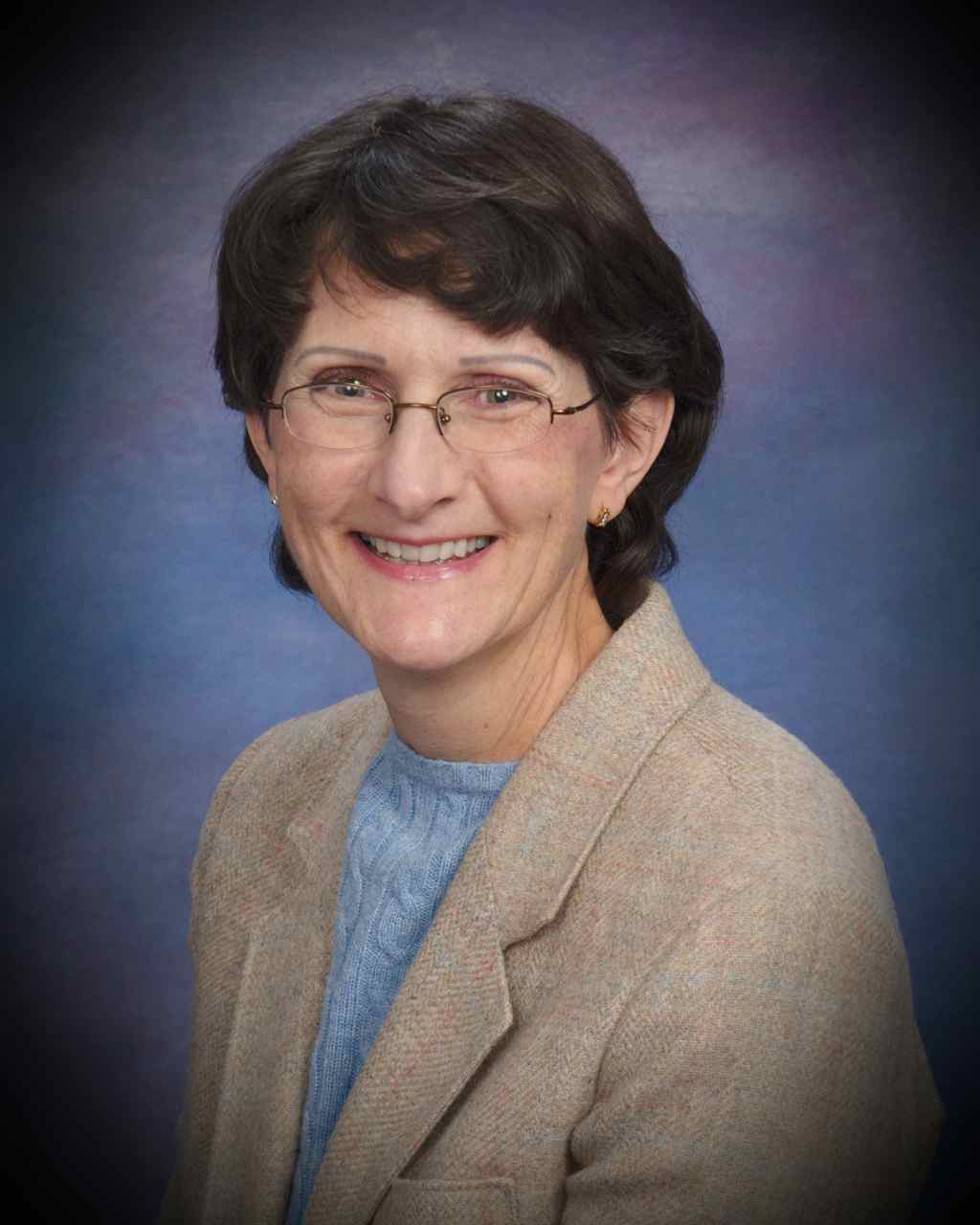 Elizabeth Maloney, MD
Elizabeth Maloney, MD
Board certified in Family Medicine
President, Partnership for Health & Healing (accredited CME program provider)
Wyoming, MN
The Ethics of Clinical Decision-Making When the Scientific Evidence is Unclear or Absent
Elizabeth L. Maloney, MD, is board-certified in family medicine and president of Partnership for Healing and Health, a company providing accredited CME programs on Lyme disease for physicians and other health professionals as well as Lyme disease education and training programs for private organizations and government agencies. She has published on Lyme disease in peer-reviewed journals and frequently lectures on Lyme disease at hospitals and medical conferences.
In addition to her clinical work, Dr. Maloney has held several physician leadership roles. She served as Chief of Staff at District Memorial Hospital and on the Board of Directors of Allina Medical Clinics, a multi-specialty healthcare system. Dr. Maloney is a member of the American Academy of Family Physicians, the Minnesota Academy of Family Physicians and the International Lyme and Associated Diseases Society.
 Judith Miklossy, MD, PhD, DSc
Judith Miklossy, MD, PhD, DSc
Board Certified in Neurology, Psychiatry, Psychotherapy and Neuropathology
Founder, Prevention Alzheimer Foundation
Director, International Alzheimer Research Center
Martigny-Combe, VS Switzerland
Late/Chronic Lyme Disease & its Relation to Alzheimer’s Disease
Dr. Miklossy is the founder of the Prevention Alzheimer International Foundation and director of the International Alzheimer Research Center in Switzerland. She also practices memory and Lyme disease consultation in Vigimed Medical Center, Martigny, Switzerland.
She is board certified in neurology, psychiatry and psychotherapy (Faculty of Medicine, University of Debrecen, Hungary) as well as in neuropathology (Swiss Society of Neuropathology and Swiss Medical Federation). She has received the degrees of Private docent (Dr habil or DSc) and Maître d’Enseignement et de Recherche (MER) in the University Hospital Center of Lausanne (CHUV), University of Lausanne, Switzerland.
She was head of the Neurodegeneration research group for more than ten years in the University Institute of Pathology, Lausanne, Switzerland. She has done molecular biology research and participated in the introduction of Alzheimer’s research in the Center of Neurovirology, Department of Neuroscience, Temple University, Philadelphia, USA. She headed the neuropathology of the Kinsmen Laboratory of Neurological Research, in The University of British Columbia, Vancouver, Canada. She is on the board of directors or scientific advisory board of several international organizations or foundations.
For more than 25 years she is actively involved in research on Alzheimer’s disease and Lyme disease in the framework of international collaborations. Her presentations on international meetings and her publications were repeatedly considered for CME and press releases.
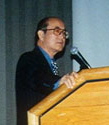 Richard S. Rhee, M.D., F.A.A.N.
Richard S. Rhee, M.D., F.A.A.N.
Clinical Professor of neurology
Robert Wood Johnson Medical School, UMDNJ
Founder & President, Jersey Shore Neurology Associates Group
Neptune, NJ
Lyme Disease: Neurologic Differential
Dr. Richard Rhee was born in South Korea and had extensive training in both internal medicine and neurology in New York City including Queens General Hospital (Internal Medicine), New York University – Bellevue Hospital and State University of New York Downstate Medical Center. He is certified in neurology, EEG, EMG and neurosonology. He did a fellowship in neurophysiology at Columbia Presbyterian Medical Center and remained as a part of the teaching faculty from 1971-1975 at the Neurological Institute of Columbia University. He has been in primary practice in neurology as the Founder and President of the Jersey Shore Neurology Associates Group in Neptune, NJ since 1975.
He has served as the President of multiple professional organizations including Monmouth County Medical Society of New Jersey, New Jersey Neurological Society, Korean-American Neurological Association (KANA) (Founding President), President of Korean-American Medical Association (KAMA) and since 1998 he has been serving as a member of the Scientific & Professional Advisory Board, Lyme Disease Association, Inc.
He has published numerous scientific articles in the field of Neurology including Lyme disease and lectured in the U.S.A. and abroad on the topics of neurological Lyme disease.
He has received multiple awards and honors including Prime Minister’s Award by the Republic of Korea, Ellis Island Award by National Ethnic Coalition of Organizations in the U.S.A., Faculty Teaching Award from Robert Wood Johnson Medical School, New Jersey State Board of Medical Examiners and Jersey Shore University Medical Center for his professional contributions. He currently serves as a Clinical Professor of neurology at Robert Wood Johnson Medical School – University of Medicine and Dentistry of New Jersey since 1981.
 Samuel Shor, MD, FACP
Samuel Shor, MD, FACP
Chair, Loudoun County Lyme Commission
Associate Clinical Professor
George Washington University Health Care Sciences
Internal Medicine & HBO Therapy of Northern Virginia
Reston, Virginia
Chronic Fatigue Syndrome & Lyme Disease – Is There A Connection?
Samuel Shor, MD, FACP; Associate Clinical Professor, George Washington University Health Care Sciences. Trained in Primary Care Internal Medicine, Dr. Shor has had an interest in chronic fatigue since starting practicing medicine in1985. His first peer reviewed publication was in 2003 on the Pathogenesis of Chronic Fatigue Syndrome a Multisystem Hypothesis. Soon thereafter he became interested in a possible connection between chronic fatigue and Lyme disease. Embracing that topic, he is presently chair of the Loudoun County Lyme commission and was a member of the 2010 Virginia Governor’s Lyme Task Force. He presented on the topic to a congressional hearing in 2008 and has twice been a participant on the nationally syndicated NPR Diane Rehm Show. Dr. Shor will now speak about his peer reviewed original research published in the Spring of 2011 in the on line Bulletin of the International Association of CFS/ME, A Retrospective Analysis of a Cohort of Internationally Case Defined Chronic Fatigue Syndrome Patients in a Lyme Endemic Area, the topic of his talk today.
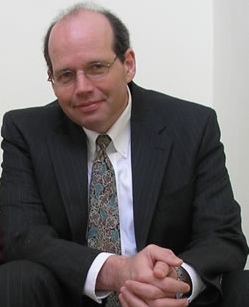 R.W. (Bill) Stich, MS, PhD
R.W. (Bill) Stich, MS, PhD
Professor of Parasitology, Department Veterinary Pathobiology
University of Missouri
Columbia, MO
Persistence of Tick-Borne Infections
Dr. Bill Stich is a Professor of Parasitology in the University of Missouri Department of Veterinary Pathobiology. Bill has worked with a diverse range of metazoan, protozoan and rickettsial parasites that include ticks (Dermacentor, Rhipicephalus, Amblyomma and Ixodes spp.), Schistosoma mansoni, Babesia bovis, Sarcocystis neurona, Neospora caninum, Anaplasma marginale, A. phagocytophilum, Ehrlichia canis and E. chaffeensis. Most of Bill’s work currently involves tick-borne parasites and pathogens, for which he utilizes molecular, proteomic, cellular, immunological and clinical technologies to investigate interactions between these pathogens and their invertebrate and vertebrate hosts.
Bill earned his academic degrees in Veterinary Parasitology at Oklahoma State University, where he studied Anaplasma marginale, a rickettsial pathogen of cattle. These graduate studies included a year of training in the Molecular Biology Division of the Onderstepoort Veterinary Research Institute in South Africa. Bill then studied Schistosoma mansoni, a human ‘blood fluke’, as a postdoctoral research fellow under the auspices of an NIH training grant titled “Molecular and Cell Biology of Parasites and Vectors” at the University of Georgia. Bill then moved to Washington State University to work as a postdoctoral research associate on an NIH grant to investigate innate and adaptive cellular immunity of cattle to Babesia bovis, an important protozoan parasite that causes a highly pathogenic form of bovine babesiosis that is similar to severe human malaria.
After a short time at WSU, Bill joined the faculty of Veterinary Preventive Medicine at The Ohio State University as an assistant professor, where he continued to work on parasitic diseases of livestock caused by intracellular protozoan parasites. It was during this time when Bill began to work with tick-borne pathogens that infect dogs and people. After promotion with tenure at Ohio State, Dr. Stich then transferred to the Department of Veterinary Pathobiology at the University of Missouri as a tenured associate professor, to continue his work on tick-borne rickettsial pathogens in ‘lone star tick country.’ Bill also teaches the nematode and trematode sections of veterinary parasitology while he continues to pursue his long-standing interest in the mitigation of vector-borne diseases of medical and economic importance. These efforts include the control of tick-borne rickettsial diseases through better understanding of the mechanisms underlying transmission and pathogenesis of their etiologic agents. So far Bill has trained seven postdoctoral researchers, five of which were DVM/PhD’s, and he has served as major adviser for five MS and four PhD graduate students. Bill’s work has received support from several grants from the NIH and from industry. Bill also served as President for the Conference of Research Workers in Animal Diseases in 2009, he is a Councilor for the Society for Tropical Veterinary Medicine and on the Board of Directors for the Companion Animal Parasite Council. Bill currently serves on the editorial advisory board of the journal, Veterinary Parasitology, and he is editor in chief of Animal Health Research Reviews.
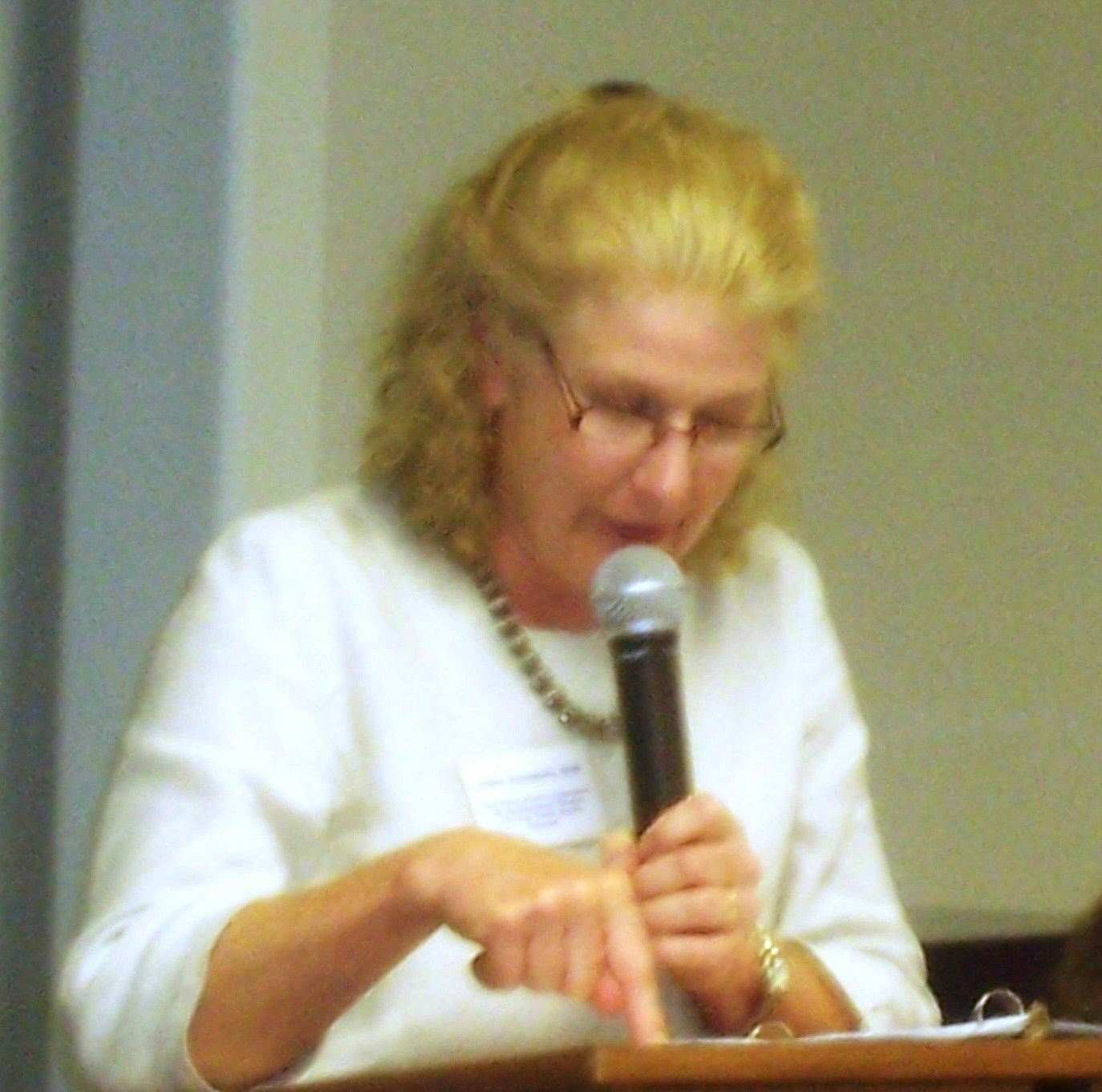 Ellen Stromdahl, MS, BCE
Ellen Stromdahl, MS, BCE
US Army Public Health Command
Entomological Sciences Program
Aberdeen Proving Ground, MD
US Army Findings in Ticks in the Upper Midwest
Ellen Stromdahl is an entomologist and has worked in the Tick-Borne Disease Program of the U.S. Army Public Health Command (formerly U.S. Army Center for Health Promotion and Preventive Medicine) since 1995.
The Program operates the Tick-Borne Disease Laboratory and produces and disseminates educational materials on tick-borne disease prevention. The Laboratory identifies and tests ticks removed from DOD personnel submitted in the DOD Human Tick Test Kit Program.
Ms. Stromdahl’s research has focused on emerging human pathogens associated with the ticks found in the United States, including Ehrlichia sp. Wisconsin, or “EML”, and other pathogens associated with Ixodes scapularis in the Upper Midwest.
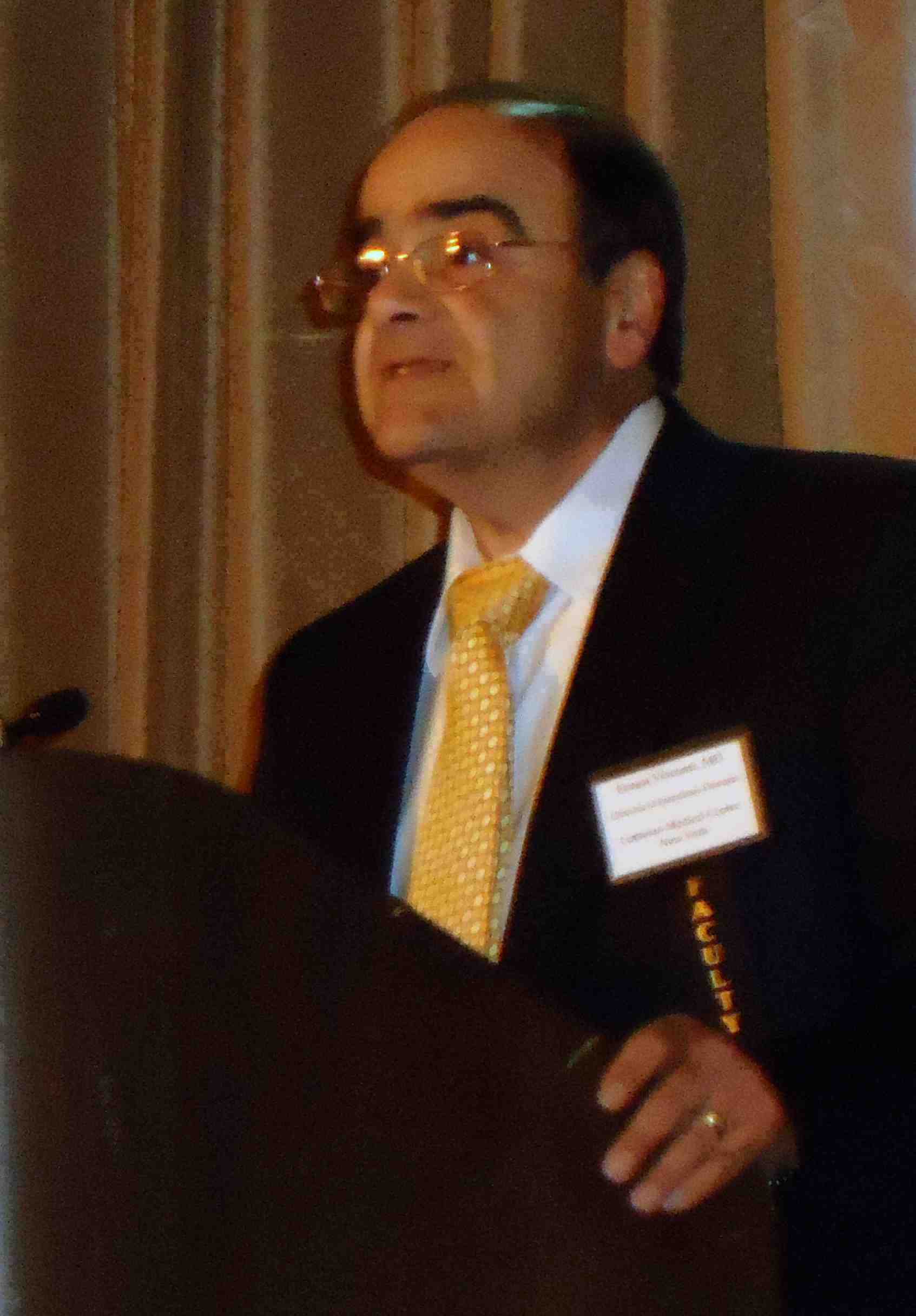 Ernest Visconti, MD
Ernest Visconti, MD
Attending in Medicine & Pediatrics
Lutheran Medical Center in Brooklyn;
Pediatric ID at Staten Island University Hospital &
Richmond University Medical Center
Private practice office location
Staten Island, New York
Helpful Hints in the Differential Diagnosis of Lyme Disease
Dr. Ernest Visconti has been attending in medicine and pediatrics at Lutheran Medical Center for 30 years. He also does pediatric ID at Staten Island University Hospital & Richmond University Medical Center. His private practice in infectious disease consists of treating patients with the following diseases: Lyme disease, chronic fatigue, fibromyalgia, Epstein-Barr, other tick-borne diseases, and many other disabilities.
Dr Visconti is also a pediatrician and has a large practice on Staten Island. There he sees well children for their examinations and vaccines. He also sees children with disabilities.
 Leila Zackrison, MD, FACR, FACP
Leila Zackrison, MD, FACR, FACP
Internal Medicine, Rheumatology
Private Practice Fairfax, VA
Lyme Disease: Rheumatologic/Autoimmune Differential
Leila H Zackrison, MD, FACR, FACP, FAARM, a board certified physician earned her Bachelor of Science, Master of Science and a Doctorate of Medicine from Loma Linda University in California. She did her internship and residency in Internal Medicine and Rheumatology fellowship at Georgetown University Medical Center Washington DC. Dr. Zackrison, (Dr. Z. as she is affectionately called by her patients) is licensed in the Commonwealth of Virginia to practice Medicine and Surgery. She is a Fellow of the American College of Physicians and American College of Rheumatology, and a Fellow of American Academy of Anti-Aging, Regenerative and Functional Medicine. She has been in private practice since 1993 treating patients nationwide using an integrative medicine approach.



